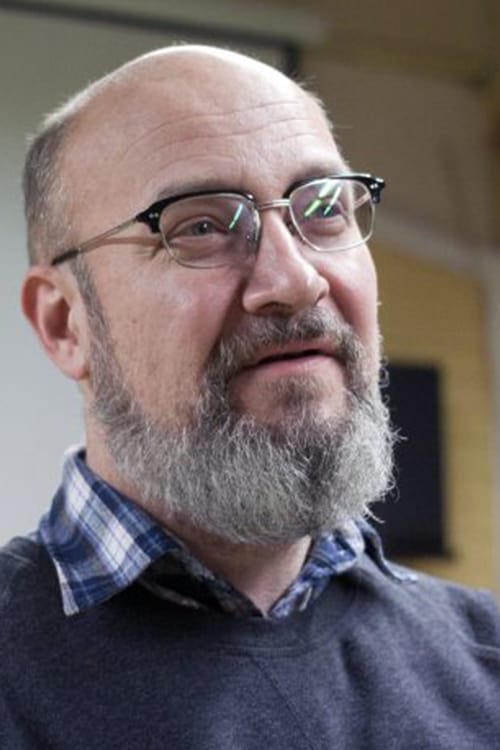Mika Taanila
출생 : 1965-05-22, Helsinki, Finland
약력
Mika Taanila is a filmmaker and visual artist based in Helsinki. His films have been screened at several
international film festivals such as TIFF Toronto, IFFR Rotterdam, Berlinale, CPH:DOX, Clermont-Ferrand, Karlovy-Vary, Midnight Sun Film Festival, IDFA Amsterdam and Kurzfilmtage Oberhausen. Taanila’s moving image installations have been shown at major international group shows, such as Venice Biennale (2017), Aichi Triennale (2013), Documenta (2012), Shanghai Biennale (2006) and Berlin Biennale (2004). Solo shows include Padiglione de l’Esprit Nouveau, Bologna (2020), STUK, Leuven (2018), Kiasma, Helsinki (2013–14), CAM, St. Louis (2013), Badischer Kunstverein (2008) and Migrosmuseum, Zurich (2005). In 2015 Taanila was awarded The Ars Fennica prize.

Producer
A three-week vacation in the middle of a heatwave. Failed Emptiness is an existential thriller that describes the familiar experience of emptiness when responsibilities end.

Editor
A three-week vacation in the middle of a heatwave. Failed Emptiness is an existential thriller that describes the familiar experience of emptiness when responsibilities end.

Director
A three-week vacation in the middle of a heatwave. Failed Emptiness is an existential thriller that describes the familiar experience of emptiness when responsibilities end.

Editor
Finnish filmmaker and artist Sami van Ingen is a great-grandson of documentary pioneer Robert Flaherty, and seemingly the sole member of the family with a hands-on interest in continuing the directing legacy. Among the materials he found in the estate of Robert and Frances Flaherty’s daughter Monica were the film reels and video tapes detailing several years of work on realising her lifelong dream project: a sound version of her parents’ 1926 docu-fiction axiom, Moana: A Romance of the Golden Age.

Screenplay
Finnish filmmaker and artist Sami van Ingen is a great-grandson of documentary pioneer Robert Flaherty, and seemingly the sole member of the family with a hands-on interest in continuing the directing legacy. Among the materials he found in the estate of Robert and Frances Flaherty’s daughter Monica were the film reels and video tapes detailing several years of work on realising her lifelong dream project: a sound version of her parents’ 1926 docu-fiction axiom, Moana: A Romance of the Golden Age.

Director
Finnish filmmaker and artist Sami van Ingen is a great-grandson of documentary pioneer Robert Flaherty, and seemingly the sole member of the family with a hands-on interest in continuing the directing legacy. Among the materials he found in the estate of Robert and Frances Flaherty’s daughter Monica were the film reels and video tapes detailing several years of work on realising her lifelong dream project: a sound version of her parents’ 1926 docu-fiction axiom, Moana: A Romance of the Golden Age.

Director
The days are long. Their core is hot. Thermographic camera looks at a new residential area in eastern Helsinki.

Director
Suddenly there is an enormous amount of time. At first everything is possible. Anything might happen. Gradually the possible becomes impossible.

Writer
Finnish engineer Eric Tigerstedt solved the dilemma of sound-on-film already before the First World War. All images and sounds in this short film are produced from the surviving test materials originally created in 1914.

Director
Finnish engineer Eric Tigerstedt solved the dilemma of sound-on-film already before the First World War. All images and sounds in this short film are produced from the surviving test materials originally created in 1914.

Editor
Exploring geological epochs and kingdoms of life, Realms voyages through deep time from the primeval ocean to a post-human future. The film employs visual storytelling, seeking to replace the anthropocentric worldview with greater attention to the complex interrelationships and dependencies between organisms, and between animate and inanimate nature.

Producer
A fractured melodrama, based on damaged frames from the last minutes of the only remaining nitrate reel of the lost feature film Silja – Fallen Asleep When Young (1937) directed by Teuvo Tulio. All screening prints and the negative of the film were destroyed in a 1959 studio fire. A sequence from the middle of the film was found at La Cinémathèque Française in Paris in 2015.

Producer
The Man Who Fell to Earth (Roeg, 1976) evacuated and flipped. In abandoned landscapes, animals, furniture and empty vehicles are left awaiting for disaster. The upside-down world is accompanied by sounds from the original film and “Man Who Sold The World” popping up backwards. A “film without film” and my Bowie tribute – without Bowie. (M.T.) ”We must have died alone, a long long time ago.” (D.B.)

Editor
The Man Who Fell to Earth (Roeg, 1976) evacuated and flipped. In abandoned landscapes, animals, furniture and empty vehicles are left awaiting for disaster. The upside-down world is accompanied by sounds from the original film and “Man Who Sold The World” popping up backwards. A “film without film” and my Bowie tribute – without Bowie. (M.T.) ”We must have died alone, a long long time ago.” (D.B.)

Script
The Man Who Fell to Earth (Roeg, 1976) evacuated and flipped. In abandoned landscapes, animals, furniture and empty vehicles are left awaiting for disaster. The upside-down world is accompanied by sounds from the original film and “Man Who Sold The World” popping up backwards. A “film without film” and my Bowie tribute – without Bowie. (M.T.) ”We must have died alone, a long long time ago.” (D.B.)

Director
The Man Who Fell to Earth (Roeg, 1976) evacuated and flipped. In abandoned landscapes, animals, furniture and empty vehicles are left awaiting for disaster. The upside-down world is accompanied by sounds from the original film and “Man Who Sold The World” popping up backwards. A “film without film” and my Bowie tribute – without Bowie. (M.T.) ”We must have died alone, a long long time ago.” (D.B.)

Screenplay

Music

Cinematography

Director

Director
Woody observation case in Helsinki through early 1950s newsreel footage. Four locations in shots, accompanied by four tape loops and four locked-groove vinyls.

Cinematography
Early 1950s newsreel laboratory marker films used for indicating effects like wipes, dissolves and fade-outs in the work print, now freed from their utilitarian practice into a fantasy realm.

Director
Early 1950s newsreel laboratory marker films used for indicating effects like wipes, dissolves and fade-outs in the work print, now freed from their utilitarian practice into a fantasy realm.

Director
In a bold and original approach to memory, this Lettrist-inspired film maps an anxiety-ridden plane journey from Tokyo to Helsinki without the aid of photographic images. A variety of interventions on the film strip are combined with an atmospheric sound design to create a subjective story of displacement and containment. In an age when experience is increasingly mediated through digital technologies, Taanila seeks out an alternative language in the sensuous surfaces of the celluloid material.

Director
A portrait of a small-town that is the unlikely site of a 'renaissance' of 'safe' nuclear energy started in 2004, a project that soon spiraled out of control.

Director
In 1965, Swedish composer/musician Jan Bark proposed an experiment for a new kind of 'music for black-and-white TV'. Bark's friend Erkki Kurenniemi programmed the animations. The original version was lost: this reconstruction was made with the help of Bark's diaries, laboratory notes and reminiscences from people involved.

Director
An anthology of one-minute films created by 60 international filmmakers on the theme of the death of cinema. Intended as an ode to 35mm, the film was screened one time only on a purpose-built 20x12 meter public cinema screen in the Port of Tallinn, Estonia, on 22 December 2011. A special projector was constructed for the event which allowed the actual filmstrip to be burnt at the same time as the film was shown.

Director
This film was inspired by a discarded film fragment I found in a dustbin, a relic from a time before the advent of computer-programmed TV. In 1978, Nobel Science Prize winners Pjotr Kapitsa, Arno Penzias, Hamilton O. Smith, Peter D. Mitchell and Werner Arber were filmed in a Stockholm TV studio talking with Bengt Feldreich about fossil fuels, nuclear reactors, genetics, the nature of time and symmetry. My version is a flicker film comprised solely of the Finnish subtitles that were played during the original broadcast. The film runs in a rapid loop, emulating the effect of a Tibetan prayer wheel.

Editor
The Pests is a documentary film about us, the pests and our need for order.

Director
The Finnish artist Mika Taanila manipulates found scientific footage - a registration of an eclipse that took place in 1945 in northern Finland - that he shows in both positive and negative.

Cinematography

Producer

Director

Director
Do machines play music? Is there a difference between a dot matrix printer and a record turntable? Optical Sound, Taanila’s 2005 wide-screen interpretation of [The User]’s brutalist sound piece for an array of obsolete printers, depicts the devices ratcheting horizontally together in a stalled symphony, inkjets repeatedly blackening the same area on the page. It is not the blurring of man with machine that lies at the core of this film, but the blurring of the spaces that each has been traditionally obliged to occupy. We disappear into our data streams, which are everywhere and “nowhere” at the same time. (Ken Hollings)

Editor
A documentary film about Erkki Kurenniemi (b. 1941), whose career represents a surprisingly natural blend of music, film, computers, robotics, science and art.

Writer
A documentary film about Erkki Kurenniemi (b. 1941), whose career represents a surprisingly natural blend of music, film, computers, robotics, science and art.

Director
A documentary film about Erkki Kurenniemi (b. 1941), whose career represents a surprisingly natural blend of music, film, computers, robotics, science and art.

Director
A found-footage film based on 35mm film material from an anonymous Finnish physical test that took place in the 1940s. The original purpose of the test remains unknown today.

Screenplay

Director

Screenplay

Director

Director

Director
A compilation from the independent record label Bad Vugum founded in 1987, originally based in Oulu, Finland. Bad Vugum consists of indie rock, noise rock, experimental rock, electronica, hardcore punk, and thrash metal. The label's name comes from an epithet invented by Captain Beefheart, heard uttered during his song "Sue Egypt". Many releases were championed by the BBC radio DJ John Peel.

Director
Swissair (Jari Härkönen, Pietari Koskinen, Mikko Kuusaari, Anton Nikkilä, Juha Soivio and Mika Taanila) were formed in the early 80s. This film (1979-1984) is an oddball summing up of edited-in-camera reels combined with a soundtrack consisting of some dynamite tracks from their punk and post-punk inspired cassette albums.

Director
A super 8 mm home movie print of The Inivisible Man treated with domestic bleach.





